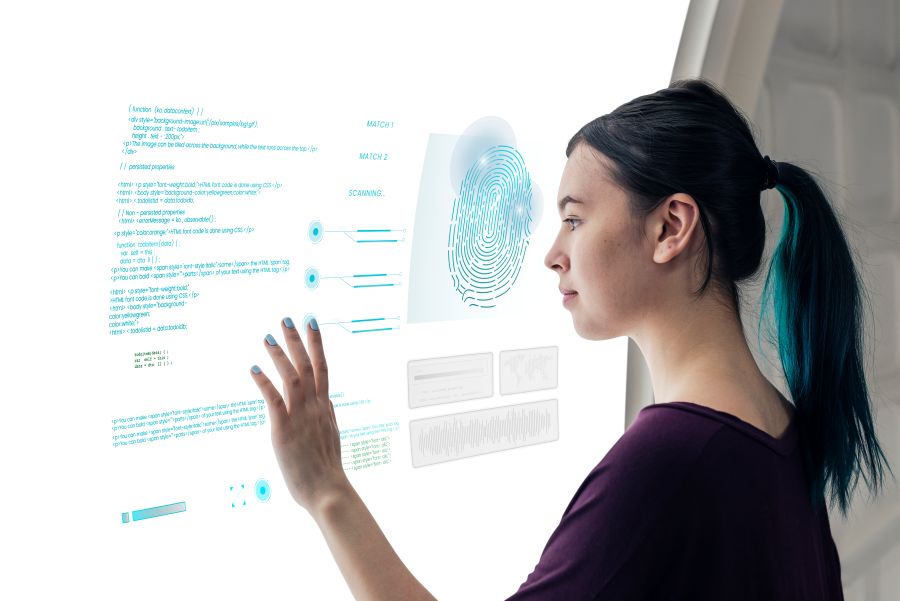Leading AI Projects to Success- The Role of AI Project Managers in Driving Innovation
Imagine trying to build a house without an architect. That’s what tackling an AI project without a dedicated project manager looks like. Without someone to draw up the blueprints and clearly define the goals, teams work from different visions, leading to confusion and misaligned efforts.
An AI project manager serves as both architect and foreman, transforming abstract concepts into actionable plans with clear objectives. They create detailed roadmaps, coordinate resources, and ensure seamless communication across teams.
In this blog, we will discuss how integrating AI would help in managing projects and driving innovation.
Let’s begin with the key responsibilities of a project manager.
Key Responsibilities of an AI Project Manager
1. Defining Project Scope and Goals
This involves clearly outlining the project’s objectives, identifying necessary data sources, and establishing measurable success metrics to guide development and evaluation. The Project Manager needs to translate business needs into technical requirements. This is the foundation upon which the entire project rests.
Imagine a project aiming to build an AI-powered customer churn prediction model for a telecom company. The Project Manager would define the scope by specifying:
- Objective: Reduce customer churn by 15% within the next year.
- Data Sources: Customer demographics, call logs, billing history, customer service interactions.
- Metrics: Precision, recall, F1-score of the model, and ultimately, the actual reduction in churn rate.
2. Data Management and Quality Control
Overseeing data collection, cleaning, and preparation processes to ensure high-quality data for model training, addressing potential biases and inconsistencies. “Garbage in, garbage out” is especially true for AI. The Project Manager ensures the data is suitable for training a reliable model.
For the churn prediction model, the Project Manager would ensure:
- Data is collected from all relevant sources and stored securely.
- Missing values are handled appropriately (e.g., imputation or removal).
- Data is cleaned to remove inconsistencies (e.g., duplicate entries, incorrect formats).
- Data is balanced to address potential biases (e.g., if the dataset has significantly more non-churned customers, techniques like oversampling or SMOTE might be used).
3. Model Selection and Development
Collaborating with data scientists to choose the appropriate AI algorithms, train models, and optimize performance based on project requirements. The Project Manager doesn’t need to be a data scientist, but they need to understand the trade-offs between different models.
The Project Manager would work with the data scientists to:
- Select an appropriate algorithm for churn prediction (e.g., logistic regression, random forest, neural networks).
- Define the training and validation process.
- Set performance targets (e.g., minimum acceptable accuracy).
- Track model performance and iterate on model parameters to optimize results.
4. Cross-functional Team Coordination
Facilitating collaboration between technical teams (data scientists, engineers), business stakeholders, and domain experts to ensure alignment and smooth project execution. The Project Manager is the communication hub.
The Project Manager would:
- Organize regular meetings between data scientists, business analysts, and marketing teams to discuss progress and gather feedback.
- Ensure clear communication of project updates and milestones.
- Resolve conflicts and address roadblocks.
- Act as a translator between technical teams and business stakeholders, ensuring everyone is on the same page.
5. Predictive Analytics and Risk Mitigation
Utilizing AI’s predictive capabilities to anticipate potential issues, identify risks early on, and proactively implement mitigation strategies. This involves using the model’s output to inform decision-making.
Once the churn prediction model is deployed, the Project Manager can use it to:
- Identify customers at high risk of churning.
- Proactively offer retention incentives to these customers.
- Analyze the factors contributing to churn and identify areas for improvement in customer service or product offerings.
6. Ethical Considerations and Bias Detection
Implementing measures to address potential ethical concerns related to AI development, such as bias in algorithms, and ensuring transparency in decision-making processes. This is a crucial and increasingly important aspect of AI project management.
The Project Manager would:
- Ensure the data used to train the model is representative of the population and doesn’t perpetuate existing biases.
- Evaluate the model’s predictions for fairness across different demographic groups.
- Document the model’s limitations and potential biases.
- Implement mechanisms for explaining the model’s decisions (explainable AI).
7. Deployment and Monitoring
Managing the deployment of AI models into production environments, continuously monitoring performance, and making necessary adjustments based on real-time data. The project doesn’t end with model training.
The Project Manager would:
- Oversee the integration of the churn prediction model into the company’s CRM system.
- Monitor the model’s performance in real-time.
- Track key metrics like accuracy and churn rate reduction.
- Retrain the model periodically with new data to maintain its performance and adapt to changing customer behavior.
How AI Project Managers Drive Innovation?
1. Identifying New Opportunities
AI Project Managers proactively seek out areas where AI can be applied to improve existing processes, create new products or services, or even develop entirely new business models. They analyze data, industry trends, and organizational needs to pinpoint potential AI applications.
An AI Project Manager at a retail company might analyze customer purchase data and identify an opportunity to use AI-powered personalized recommendations to increase sales. They would then propose a project to develop and implement such a system.
2. Experimentation and Agile Approach
AI Project Managers foster a culture of experimentation by encouraging rapid prototyping and iterative development. They understand that AI projects often involve uncertainty and require a flexible approach to adapt to new findings and challenges.
An AI Project Manager leading the development of a new AI-powered chatbot for customer service might use an agile methodology with short sprints and frequent feedback loops. This allows the team to quickly test different chatbot designs and functionalities and make adjustments based on user interactions.
3. Leveraging AI Insights
AI Project Managers use AI-generated insights to make data-driven decisions. They analyze the output of AI models to understand customer behavior, optimize processes, and improve the performance of AI systems.
An AI Project Manager overseeing an AI-driven marketing campaign might use AI-generated insights to identify the most effective channels and target audiences. They would then adjust the campaign strategy based on these insights to maximize its impact.
4. Staying Updated with AI Trends
AI Project Managers continuously learn about the latest advancements in AI technology. They attend conferences, read research papers, and follow industry publications to stay informed about new techniques and tools that can be incorporated into their projects.
An AI Project Manager might learn about the emergence of a new AI technique called “federated learning” and realize that it could be used to improve the privacy of customer data in their AI projects. They would then explore how to integrate this technique into their projects.
Key Takeaways
- AI project managers translate complex technical requirements into clear business objectives
- They connect technical teams and business stakeholders, ensuring alignment and clear communication.
- They leverage AI for risk mitigation and informed decision-making.
- They address ethical concerns and continuously monitor model performance post-deployment.
- They identify AI opportunities, foster experimentation, and stay updated on the latest advancements.
In conclusion, we can say that managing AI projects is a unique challenge, demanding a blend of traditional project management skills with a deep understanding of AI principles and ethical considerations.
AI Project Managers are the architects of this new era, turning vague ideas into concrete plans, navigating the complexities of data, models, and cross-functional teams, and driving innovation through insightful analysis and proactive risk mitigation. They are not just managers; they are leaders, guiding organizations through the AI revolution.
Are you ready to lead in the AI revolution?
AI CERTs’ “Leading AI Projects to Success” certification empowers you with the expertise to excel as an AI Project Manager. It covers everything from project scope and data management to ethical considerations and model deployment. Lead the AI revolution – enroll in AI CERTs’ program today.




